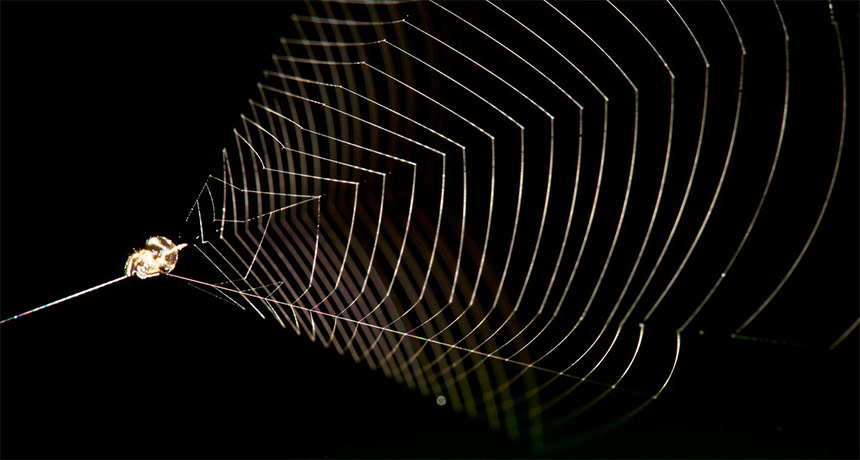This spider slingshots itself at extreme speeds to catch prey
The Peruvian spider and its web go flying with 100 times the acceleration of a cheetah

DINNER IS SERVED To catch its prey, the slingshot spider sends itself and its web flying at extreme accelerations.
Lawrence E. Reeves






